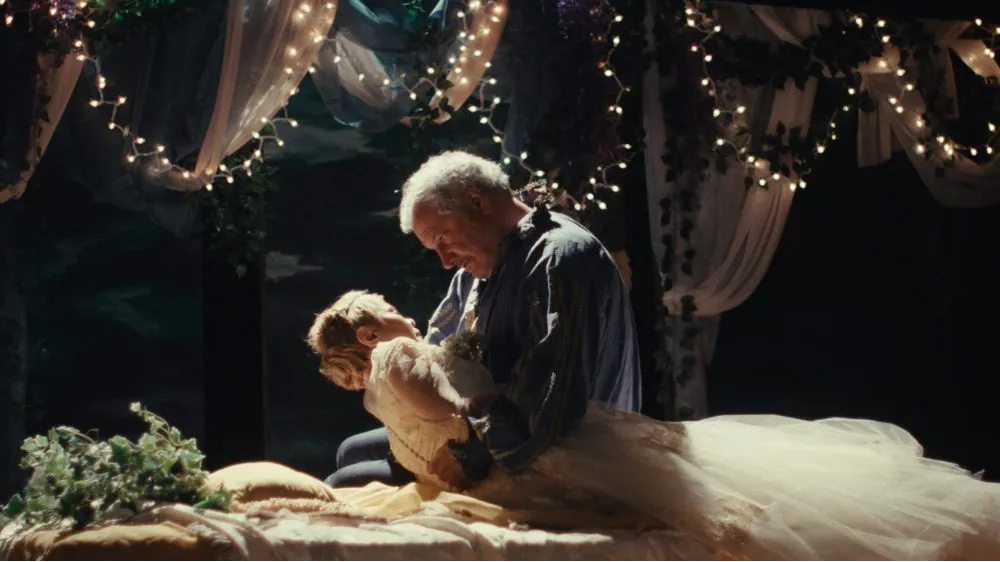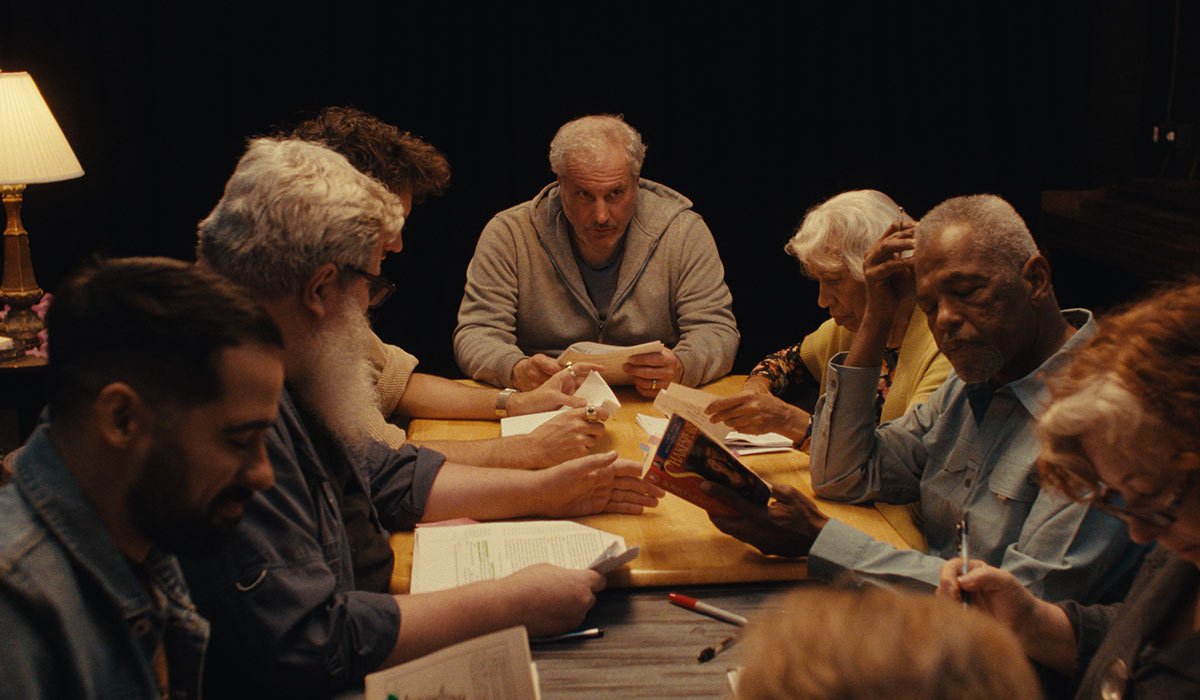In Sing Sing and Ghostlight, The Healing Power of Theater
Two films centered around the production of Shakespeare plays, both of which capture the healing power of community through the innately collaborative nature of theater work, Sing Sing and Ghostlight open and close this year’s Chicago Film Critics Festival (get tickets now) with an unexpected yet rewarding symmetry. You won’t find a better double feature this year.
Sing Sing follows a group of people who are incarcerated at the Sing Sing Correctional Facility, a maximum security prison in New York. John “Divine G” Whitefield (Colman Domingo) has been imprisoned for a crime he didn’t commit; while at Sing Sing, he and other incarcerated individuals pass the time by forming a theater troupe, only to find themselves also processing painful emotions through this makeshift community. Greg Kwedar’s drama traces their attempts to put on an ambitious, multi-genre performance of an original play loosely—and I mean loosely—based on Hamlet, entitled Breakin’ The Mummy’s Code.
Ghostlight, the second feature by Saint Frances’ Alex Thompson and Kelly O’Sullivan, follows a family living in the Chicagoland area in the wake of a family tragedy. Dan (Keith Kupferer), the family patriarch, is arguably the most tormented by guilt and pain. He begrudgingly joins a local theater troupe that’s in the midst of putting on a production of Romeo and Juliet. Through his participation in this production, Dan comes to realize that the play’s central tragedy uncannily mirrors what has happened in his own life.
Kupferer previously told Time Out Chicago that what he loves about the Chicago theater scene is that, since the productions are “small enough to take risks with new work,” the community is not cutthroat and the creative environments remain conducive to collaboration. In distinct ways, Sing Sing and Ghostlight both depict productions that are concerned not only with adapting their chosen plays. Instead, the productions these communities stage serve as a medium for their participants to tap into buried creativity and emotion.
In Sing Sing, while Hamlet serves as the foundational text for Breakin’ The Mummy’s Code, a myriad of other stories also inspire the play. In one of the film’s standout scenes, after it’s decided that the troupe’s next play will be an original production, play director Brent (Paul Raci) asks the other members to brainstorm what they’d want the play to look like.
Films from Gladiator to Back to the Future are name-dropped as everyone in the room lets their imagination run wild. Childlike glee and wonder come to the fore as the men build this story in live time, paying no mind to budgetary constraints or narrative cohesion. For them, the play production is a fluid process that welcomes the voices of all who participate; no idea is too outlandish. Rather than buckle under the weight of its creative influences, the end result is a play that acts as a collage and celebration of the creative people it centers. As we see these men bare their souls on the play’s opening night, it’s a powerful reminder that each of them have refused to let their colorful personalities and shared humanity be stamped out by a criminal legal system structured to dehumanize them.
Ghostlight’s production of Romeo and Juliet doesn’t quite mix genres in quite the same way Breakin’ The Mummy’s Code does, but the production is similarly one that’s ever-changing, enlivened by the suggestions of the people bringing the play to life. When Dan first joins the troupe, he’s surprised to see people of all ages interchangeably taking on roles within the play. Indeed, in the sanctity of the theater in Waukegan, Illinois, there’s no such thing as an “age-appropriate” Romeo and Juliet; the tragic couple can be played by the middle-aged or by the elderly. As the troupe members channel their emotions into public performance rather than repressing them, Dan finds the hope he needs to begin processing his own pain.
As he sees others reinvent themselves with a new line reading or role, Dan begins to sense that the promise of better days isn’t behind him. Furthermore, he’s able to bring all of who he is into the production process, and the troupe creates space for him rather than forcing him to conform. Notably, O’Sullivan and Thompson shoot these rehearsal scenes with a handheld camera, adding a powerful intimacy as Dan moves from hiding his pain to expressing it.
Sing Sing and Ghostlight remind us all that no one creates art in a void. The act of creativity is inherently collaborative, and it is in the brainstorming, workshopping, and mutual exchange of ideas that emotions can be fully articulated and souls can be mended. These are both films about people, initially confined by their circumstances, who find wholeness and healing, a path toward greater emotional freedom, through the magic of theater. I can think of no better way for this year’s Chicago Critics Film Festival to both open and close than with these reminders of art’s transformational power.
Zachary Lee is from Chicago’s North Side. A 2023 Chicago Film Critics Association & Rotten Tomatoes Emerging Critics Program Grant Recipient, he is a freelance culture writer who often writes about media, faith, technology and the environment. His words can be found at RogerEbert, Sojourners, Christianity Today, Third Coast Review, ShortStick and ThinkChristian. You can find him on X and Letterboxd.
Sing Sing screens Friday, May 3, at 6:30 p.m, as a opening-night title for the Chicago Critics Film Festival (May 3–9, at the Music Box Theatre in Chicago). Get your tickets now.


